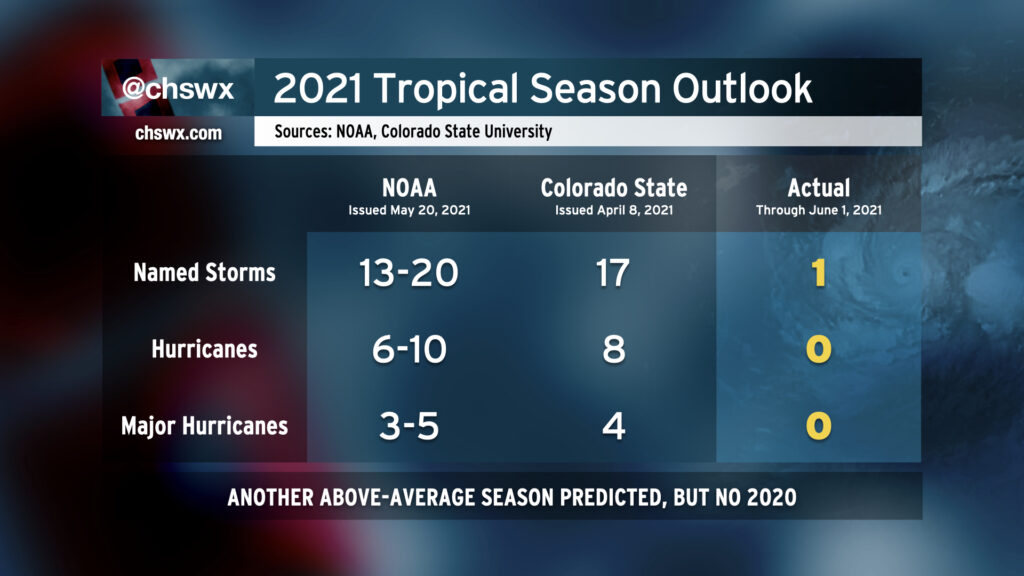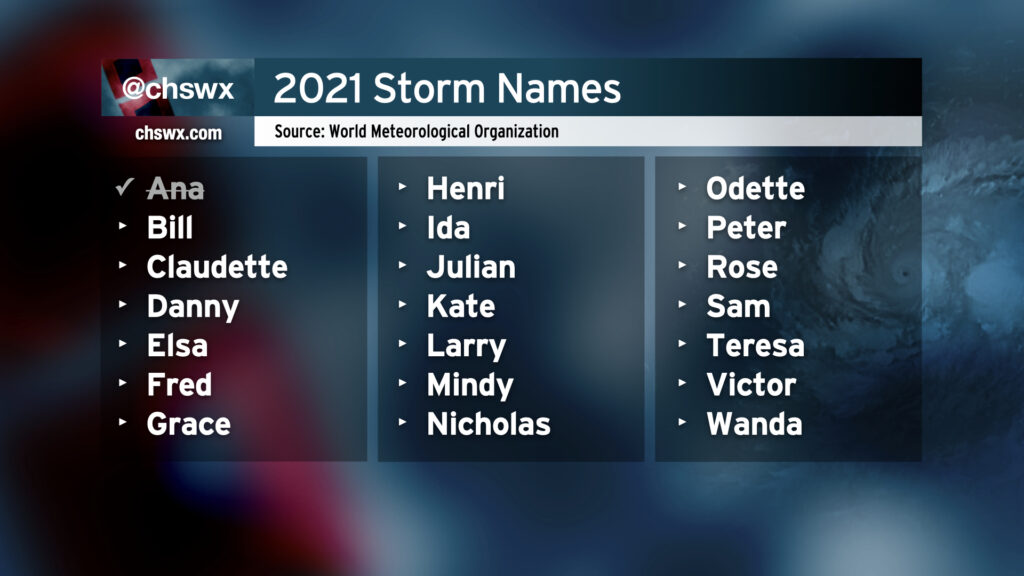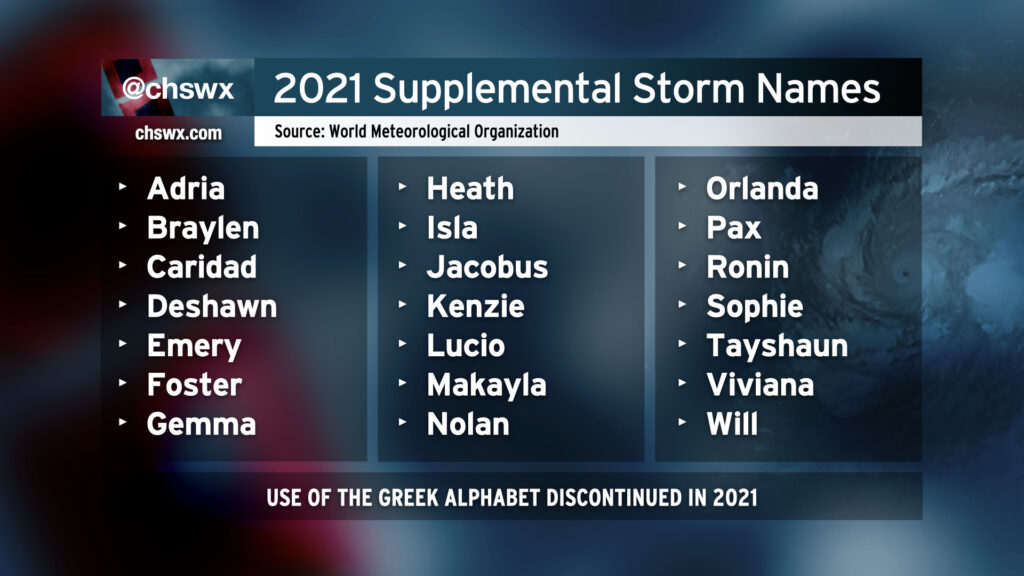Hurricane season begins anew in the Atlantic basin

Well, friends, it’s that time of year again: The Atlantic hurricane season begins today and runs through November 30. Seasonal forecasters from Colorado State University and NOAA are calling for another above-average season when considering continued warm sea surface temperatures and ENSO-neutral conditions (read: no La Niña nor El Niño is expected). While a repeat of the sheer volume of the 2020 hurricane season is unlikely, it still looks to be busy out there.
2021 storm names

This year’s names source from the list last used in 2015. Much like 2015, we’ve already seen Ana, which was a tropical storm northeast of Bermuda from May 22-24. With any luck, this is the only similarity to 2015.
2021’s list brings two new names after retirements:
- Elsa replaces Erika, which became the costliest and deadliest natural disaster on the small island of Dominica thanks to copious rainfall.
- Julian replaces Joaquin, which was the strongest storm of 2015, brought storm surge and intense winds to the Bahamas before acting as a moisture tap for 2015’s historic flooding in South Carolina.
New in 2021: No more Greek names

After 2020’s record number of named storms going extremely deep into the Greek alphabet, the World Meteorological Organization has taken a different approach to the “overflow” list in 2021. With concurrent storms with similar-sounding phonetics (Eta and Theta, for instance) causing confusion, WMO has created a secondary list of storms which replaces the Greek alphabet in case the existing list is exhausted. With any luck, we will steer far clear of this list, and I won’t have to run this graphic again.
Preparedness resources
The best time to get ready for a hurricane is when there isn’t one out there. Fortunately, the South Carolina Emergency Management Division has pulled together everything you need to know to get ready for tropical mischief on their new South Carolina Hurricane Guide website. It provides supply lists, evacuation zones and routes, and other actions to take before, during, and after the storm.
In the prelude to last season, I wrote up some tips on how to handle storm anxiety. It’s a real thing, and there is absolutely no shame in experiencing it. Hurricane season can be a tense time; the best antidote is preparedness and listening to the right sources of information. Most importantly, stay away from weather model speculation and listen to official forecasts from trustworthy sources. Like it or not, “shock and awe” is a common tactic for driving traffic in an ever-crowded social media landscape. As I wrote last year:
Make sure the sources you get weather information from are reliable and grounded in reality. These sources will prefer National Hurricane Center forecasts to speculation, only raise the alarm when it is warranted, and will carefully explain forecast reasoning as opposed to lots of hype-charged rhetoric. Be especially wary of weather sources that over-sell the need to like and share posts, or worse, pump you for money at every opportunity.
How @chswx covers storms
In the spirit of full transparency, I think it’s important to discuss some of the editorial decisions I make here. I cover weather events a little differently than a lot of outlets because I have constraints — and freedoms — that other outlets do not. Here’s how I handle hurricanes:
- Give storms the proportion they deserve. If it’s a random swirl in the Atlantic, I mention it once, acknowledge it exists, and then move on. It’s summer in Charleston — there’s always other weather to discuss. No need to clog your timeline with largely irrelevant storms. This way, if I’m talking about a storm on a regular basis, it’s a good signal to keep up with it.
- I share only official National Hurricane Center forecasts publicly. It does a disservice to the reader to muddy the waters with model data that may or may not pan out. Models are guidance, not gospel, and the Hurricane Center is really, really good at forecasting storm tracks. I’m going to let them do what they do best. Computers are getting better, but humans continue to reign supreme.
- I do my best to write with empathy and respect for my readers. My posts are not written with the express intent of inflaming storm anxiety. If they do, hold me accountable.
It only takes one
Seasonal forecasts and model projections aside, it only takes one storm to make a hurricane season memorable for all the wrong reasons. Don’t get too caught up in these; we in the weather enterprise will let you know which storms are worth watching.
Bottom line: Be prepared, not scared, and you’ll get through this season just fine.
Follow my Charleston Weather updates on Mastodon, Instagram, Facebook, Bluesky, or directly in a feed reader. You can also get daily audio updates via the Charleston Weather Daily companion podcast, available wherever fine podcasts are listed. Do you like what you see here? Please consider supporting my independent, hype-averse weather journalism and become a supporter on Patreon for a broader look at all things #chswx!